In his Nobel Prize speech, Alexandr Solzhenitsyn reveals the connection between Art and Courage, and the artist’s responsibility to stand for Truth, Beauty, and Goodness.
Blessed are those who have regard for the weak;
Psalm 41:1-2
the Lord delivers them in times of trouble.
The Lord protects and preserves them—
they are counted among the blessed in the land—
he does not give them over to the desire of their foes.
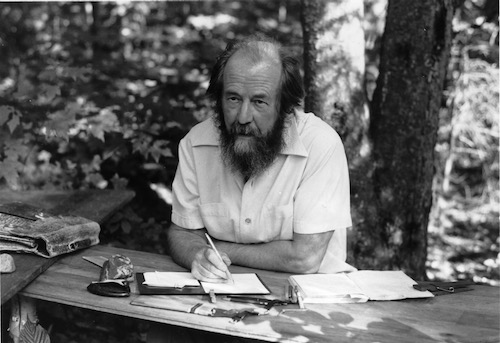
If you haven’t read the Gulag Archipelago, you should
If you haven’t yet read Alexandr Solzhenitsyn, you should–especially in our times. His Gulag Archipelago outlines in detail the savage and calculated brutality of the Stalinist Soviet Union that let to the death of 60 million Russians.
What’s shocking to read is the way the gulags crept up on an unwitting Russian populace. One is walking to work one morning, a truck pulls up, and the person is thrown in among a pile of other people and transported away. Gone–no parting words to his wife or hugs and kisses from his children. Just taken off the street.

The ones to go first were the journalists, academics, artists, and clergy.
But there was nowhere to run or hide–for anyone. No one was safe in the gulag system. The gulags indeed were filled with political leaders and political pundits who had found themselves on the wrong side of Stalin’s extemporaneous tyranny.
And then there’s Alexandr Solzhenitsyn …
He was serving in East Prussia in February 1945 when he was arrested and taken to the gulags. For what charge? Writing a personal letter to a friend in which he expressed disdain about how Stalin was handling the war, and the need for a new organization to replace the Soviet regime. He was accused of anti-Soviet propaganda and for “founding a hostile organization” before taken to the Lubyanka prison in Moscow. He was finally sentenced to an eight-year term in a labour camp. It was a decade of imprisonment and exile that led him to embracing in a much deeper way the Eastern Orthodoxy of his childhood, and to share all he could about the gulags in which he witnessed such unspeakable suffering, torture, and death.
Solzhenitsyn saw the gulags and the mass systemic deaths of the Russian people to be the result of the “Dechristianization of Russian culture,” which he considers the Bolshevik Revolution to be a culprit along with the great schism of 1666. Solzhenitsyn writes …
But if I were asked today to formulate as concisely as possible the main cause of the ruinous revolution that swallowed up some 60 million of our people, I could not put it more accurately than to repeat: Men have forgotten God; that’s why all this has happened.
The Nobel Prize Lecture
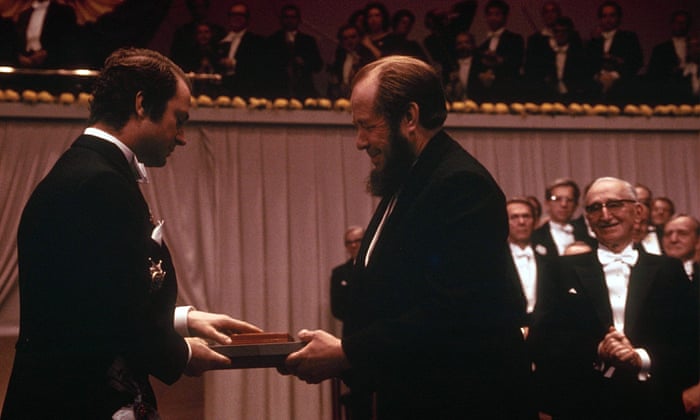
In 1970, Alexandr Solzhenitsyn was awarded the Nobel Prize in Literature for the Gulag Archipelago that sold tens of millions of copies and had “amounted to a head-on challenge to the Soviet state.” In his speech, Solzhenitsyn talked about the power of Art to radically challenge tyrannical political systems, and to educate and inspire the masses to what is good and true and beautiful.
But let’s go deeper into Solzhenitsyn’s understanding of the artist and his or her’s role in the making of courageous art, and let’s analyze his Noble Prize speech, and see what we can glean from his extraordinary insights into truth and beauty and artistic responsibility.
When it comes to Art, we are like a “puzzled savage who has picked up a strange object cast from the ocean”–we don’t know if it’s ben “unearthed from the sands” or “fallen down from the sky.” We turn the object this way and that; we turn it over to discover not only what it is but what to do with it. But all we can do is discover some mundane function but never dreaming of its higher function.
So it is with Art. Holding it in our hands, we “confidently consider ourselves to be its masters.” We speak on its behalf, we attempt to renew it. We monetize it, seek to profit from it, turn it into advertising or political propaganda for “narrow minded social ends.”
And in such cases, like the “puzzled savage” we can hardly dream of its higher purpose, even though “in each application it gives to us a part of its secret inner light.”
“But shall we ever grasp the whole of this light? Who will dare to say that he has defined Art, enumerated all its facets?” Art is primordial and transcends man. We can represent it, but cannot possess it. When we authentically participate in it, it gives us part of its secret inner light. But to what end? That remains the question.
An artist …
recognizing a higher power above, gladly works as a humble apprentice beneath God’s heaven; then, however, his responsibility for everything that is written or drawn, for the souls which perceive his work, is more exacting than ever. … [The] artists has merely to be more keenly aware than others of the harmony of the world, of the beauty and ugliness of the human contribution to it, and to communicate this acutely to his fellow-men.
And if one thinks the artist’s role ends there in this kind of blithe harmony with the world, Solzhenitsyn continues …
And in misfortune, and even at the depths of existence–in destitution, in prison, in sickness–his sense of stable harmony never deserts him.
To see, to be open and sensitive to, the harmony of the world, the beauty and the ugliness of the human condition, then communicate it acutely to one’s fellow human being–that is one of the roles of the artist. To affirm beauty and meaning and the harmony of creation.
Artistry is a gift from Heaven
Artistry, according to Solzhenitsyn is a gift from heaven–a gift we must realize, affirm, and understand. Indeed, this artistic gift to humankind goes way back to the first humans.
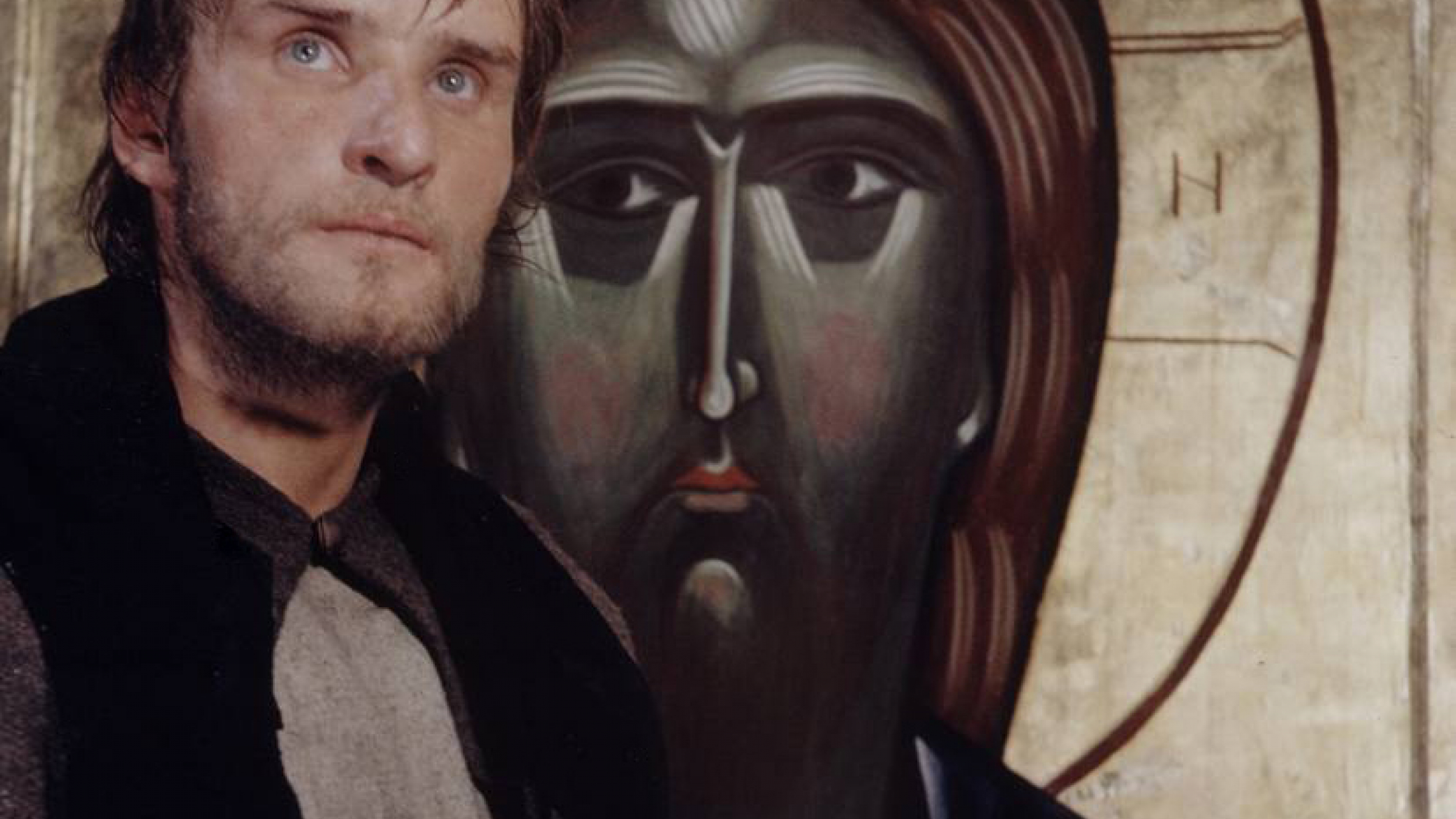
Right back in the early morning twilights of mankind, we receive it from Hands which we were too slow to discern. And we were too slow to ask: For what purpose have we been given this gift? What are we to do with it?
There’s a prophetic element to Solzhenitsyn’s understanding of Art. There is a deep sense of responsibility to point our fellow men to beauty and the sheer ugliness of the human condition.
Art is a gift to human beings. It is a gift from God that we’ve been “too slow to discern.” Therefore those “will always be mistaken who prophesy that art will disintegrate, that it will outlive its forms and die.”
We will die. Art will remain.
And what about Beauty? …
One day Dostoevsky threw out the enigmatic remark: “Beauty will save the world.” What sort of statement is that? … When in bloodthirsty history did beauty ever save anyone from anything? There is however a certain peculiarity in the essence of beauty, a peculiarity in the status of art: namely, the confiding news of a true work of art is completely irrefutable and it forces even an opposing heart to surrender.
The difference between authentic and inauthentic art–i.e. a kind of propagandistic or pompous commercial or corporate art (such as advertising)–is that authentic art, as Solzhenitsyn states, “scoops up the truth” and presents it to us as a living force. Real Art takes hold of us. It has the power to stop us dead in our tracks.
Art points us to Beauty …
But Art serves another function: it points us to beauty when goodness and truth have been torn down, destroyed by malicious political regimes and the destructiveness of tyranny.
If the tops of these trees converge … but the too blatant, too direct stems of Truth and Goodness are crushed, cut down, not allowed through–then perhaps the fantastic, unpredictable, unexpected stems of Beauty will push through and soar to that very same place, and in so doing will fulfill the work of all three.
In times when Truth and Goodness are crushed, chopped down, seemingly nullified, Beauty can soar to that same place and fulfill the work of all three! Art for times of tyranny and destruction.
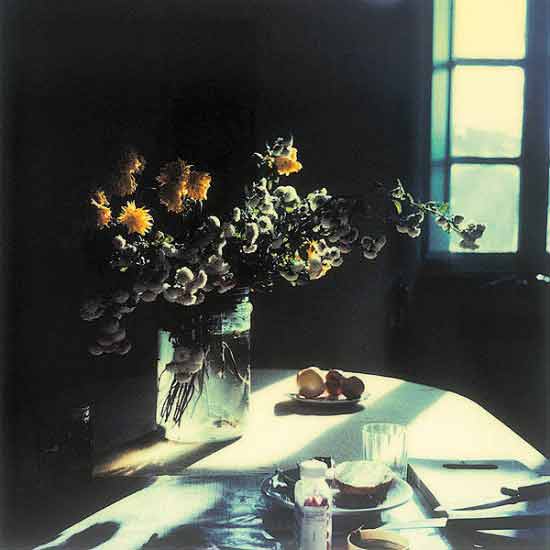
And this leads us back to Dostoevsky’s “Beauty will save the world”–far from a “careless phrase” it is a prophecy, but not just for the times of the horror of the Bolshevik Revolution, or the times of Solzhenitsyn’s Gulag Archipelago, but for our times today–these times of creeping tyranny, mass human experimentation, suicide, medical har, economic unpredictability, and the freezing over of long-held democratic systems.
“And in that case,” Solzhenitsyn continues, “art, literature might really be able to help the world today …”
Indeed there is a prophetic responsibility that writers have to point people to Beauty, Truth, and Goodness in times of systemic deception, and dull persistent evil.
“Russian literature has long been familiar with the notions that a writer can do much within his society, and that it is his duty to do so.”
A calling away from the navel-gazing existential to the political and fraternal. And in the following statement, Solzhenitsyn is writing about our times in the most prescient way …
Violence, less and less embarrassed by the limits imposed by centuries of lawfulness, is brazenly and victoriously striding across the whole world, unconcerned that its infertility has been demonstrated and proved many times in history. What is more it is not simply crude power that triumphs abroad, but its exultant justification. The world is being inundated by the brazen condition that power can do anything, justice nothing.
Solzhenitsyn is the Dostoevsky of our times
I believe Solzhenitsyn is to our times what Dostoevsky was for the decades preceding the Bolshevik Revolution and the rise of Stalinism–indeed an epoch of tyranny and world war …
Dostoevsky’s ‘Devils’ … are crawling across the whole world in front of our very eyes, infesting countries where they could not have been dreamed of; and by means of the hijackings, kidnapping, explosions and fires of recent years they are announcing their determination to shake and destroy civilization!
Yes, the devils, the demons, of radicalism and tyranny determined to shake and destroy civilization. Were you seeing this Alexandr? Were you seeing these very times today when you gave this speech so many years ago? The brazen conviction that power can do absolutely anything. We are seeing a wickedness growing in our world that is systemic–a grand collusion against the human race that bears the very image of God.
And if you think I am mincing words when I laud Solzhenitsyn for his prescience, just read this next statement and see for yourself …
It would seem the appearance of the contemporary world rests solely in the hands of the scientists; all mankind’s technical steps are determined by them. It would seem that it is precisely on the international goodwill of scientists, and not of politicians, that the direction of the world should depend. All the more so since the example of the few shows how much could be achieved were they all to pull together.
What we are seeing today is what can be accomplished when a small group of powerful people seek to control and subjugate and manipulate and use the entire human race. And scientists–under the guise of political pundits, news agencies, health care officials, and entertainment–are foisting their scientific method on unwitting people, that making up a false science and calling it ‘The Science’.
And in such times, who are the prophets, the cultural critics, those who stand for truth and justice? When corruption runs amok all over the place.
And who, of not the writer, are to pass judgment–not only on their own unsuccessful governments … but also on the people themselves, in their cowardly humiliation or self-satisfied weakness? Who is to pass judgement on the light-weight sprints of youth, and on the young pirates brandishing their knives?
The true role of the writer
Here Solzhenitsyn reveals the true role of the writer: to report on, expose, and indeed pass judgement on governments and those who abet them–the compliant ones who engage in what Hannah Arendt poignantly described as “the banality of evil.” Who else is in a position to artistically expose the evil of one’s times
We shall be told: what can literature possibly do against the ruthless onslaught of open violence? But let us not forget that violence does not live alone and is not capable of living alone; it is necessarily interwoven with falsehood. Violence finds its only refuge in falsehood, falsehood its only support in violence.
Violence and falsehood are logically interconnected …
Any man who has once acclaimed violence as his method must inexorably choose falsehood as his principle.
Tyranny and political oppression feed on silence and complicity. Complicity is deceitful. In a world today drunk with cowardice, silence, and complacency, the words of Solzhenitsyn represent a calling to writers everywhere.
And in revealing the responsibility of the writer to expose evil, he also reveals the key to writing, indeed to art itself …
And the simple step of a simple courageous man is not to partake in falsehood, not to support false actions! Let [the lie] enter the world, let it even reign in the world–but not with my help.
Writing and spiritual practice
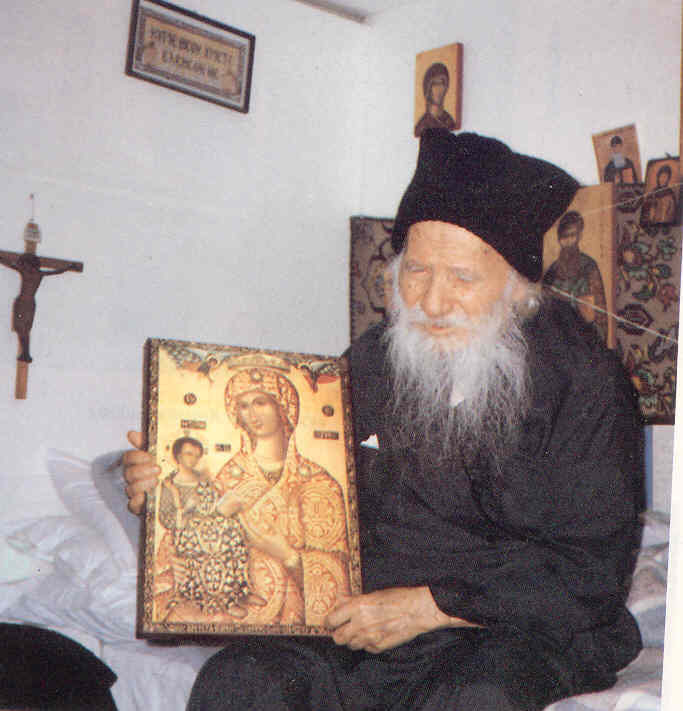
Hence the act of art and writing is connected to spiritual practice–to affirm Goodness, Truth, and Beauty. Writing thus ought to be a spiritual exercise that comes out of the pursuit of Truth and Goodness within the writer’s heart, within his or her own soul. In such a pursuit, Art and prayer become united. The artists, the writer, seeks God first before any other inspiration or any other act. And the prayer that comes from the heart of the artist is to know the difference between what is true and what is false, what is real and what is fake. It is a prayer ever upon the heart for the Holy Spirit to show you the truth and falsehood of a given situation, and then to embolden you to enter that situation, to choose the side of truth, with courage and strength.
Such a spiritual practice thus becomes a warfare within ourselves–not just externally in the world. We must hunt down the falsehood in our own hearts; all the ways we blithely carry falsehood in our hearts that lead to unchecked compliance and cowardice. And such a way of living becomes a way of Art, or what Saint Porphyrios calls “living poetically.” But such a way of living must be a life of prayer and loving union with God and others–or what St. Porphyrios calls becoming a saint …
“You don’t become holy by fighting evil. Let evil be. Look towards Christ and that will save you. What makes a person saintly is love.”
St. Porphyrios
And this is where I think it’s important to offer a spiritual interpretation of Solzhenitsyn’s following words about Art and the battle against falsehood. Not that we should not struggle against falsehood in the world, but that the struggle must always begin with ourselves through prayer and a life devoted to love.
But writers can achieve more: they can conquer falsehood! In the struggle with falsehood art always did win and it always does win! Openly, irrefutably for everyone! Falsehood can hold out against much in this world, but not against art.
It is in the act of creating art that is true and good and beautiful that we strike out against, call out, and expose the systemic evil of our times. The work of the artists is thus the work of a prophet–it is a kind of prophecy: to be attuned to and expose the lies of our age and call out the workers of lawlessness. To not let silence set in on tyranny.
One word of truth outweighs the world
And no sooner will falsehood be dispersed than the nakedness of violence will be revealed in all its ugliness–and violence, decrepit, will fall.
That is why my friends, I believe that we are able to help the world in its white-hot hour. Not by making the excuse of possessing no weapons, and not by giving ourselves over to a frivolous life–but by going to war!
And here is the one sentence that should strike at the heart of all of us if we are truly human; a line that should haunt us in our sleep, and terrify us when we are going about our way; a line that if we were all to put it not sure practice could change the course of history …
ONE WORD OF TRUTH SHALL OUTWEIGH THE WHOLE WORLD.
Solzhenitsyn once wrote that his life changed when he made the decision that he was only going to speak and act based on what is true; that in all things he was going to work at shunning falsehood.
Think about it …
How much of our lives is a chimera so that people will like us? Will admire us? And if this desire to be admired dwells in our lives, in our hearts, how will it not seep out into our writing, our creating? How many of our decisions come from what looks good to others or presents a certain mask to the world?
I’m not who you think I am …
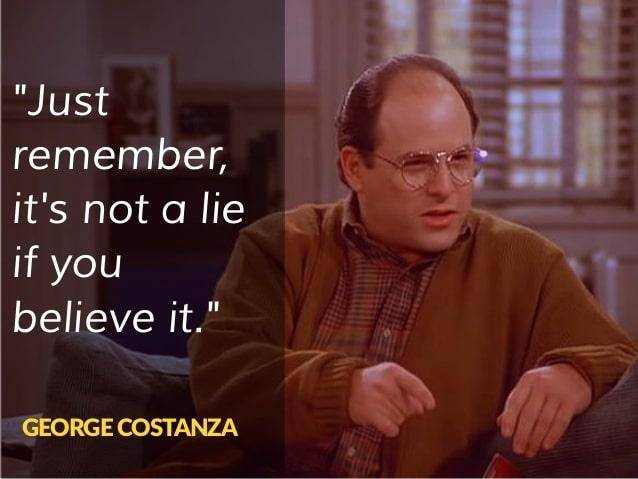
I resonate with this one statement–an ironic statement that comes out of psychoanalysis …
I’m not what I think I am;
I’m not what you think I am;
Instead, I am what I think you think I am.
When will we stop the lies?
When will we choose, like Solzhenitsyn did, to struggle to affirm and hold to what is true?
We can’t do it on our own.
We can’t do it through human reason–it’s never worked.
We must pursue Truth Himself; the Logos Himself.
And that is how we take Solzhenitsyn’s affirmation of truth and transcend it. For to be human, to affirm truth and beauty, begins with recognizing not the shortfalls of others, but rather my own shortfalls, my own weakness, the banality of evil that exists in me.
The man who cries out against evil men, but does not pray for them, will never know the grace of God
St. Silouan the Anthonite
Therefore, when we look at Solzhenitsyn’s quote above that “one word of truth outweighs the world,” that word of truth must be applied to ourselves. It’s how we shed the lies and deceit and the masks that we’ve wrapped around ourselves; it’s how we start the process of healing from our illness; it’s how, getting back to Thomas Merton, we become saints by becoming our true selves.
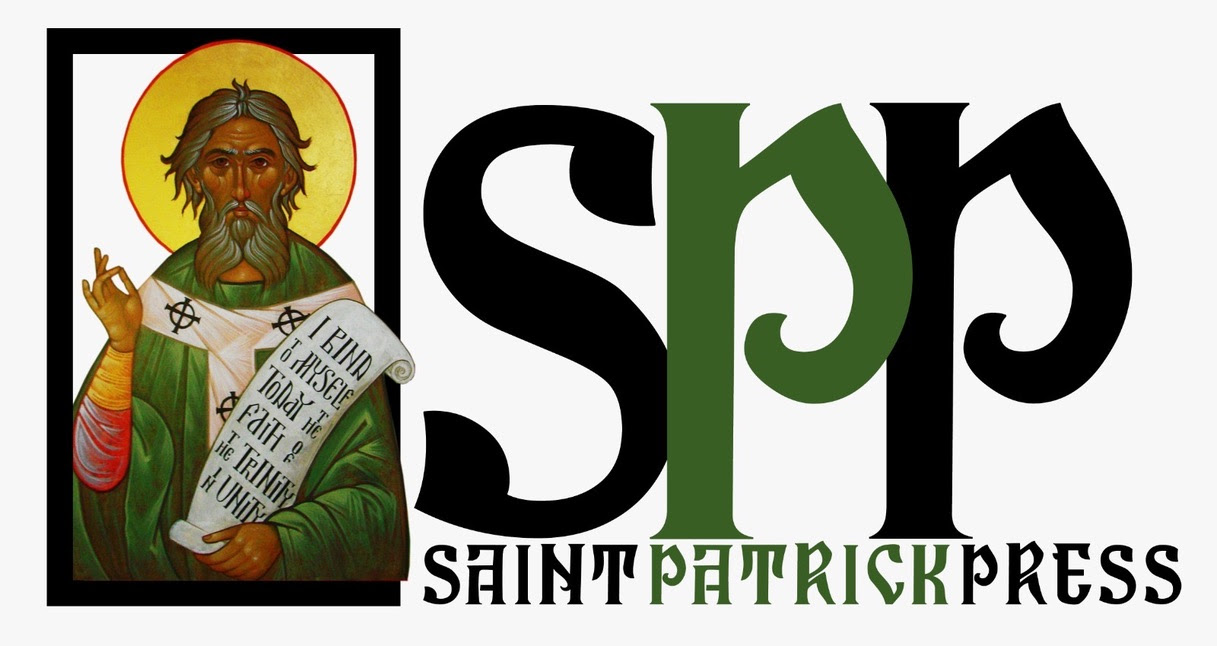
One Response